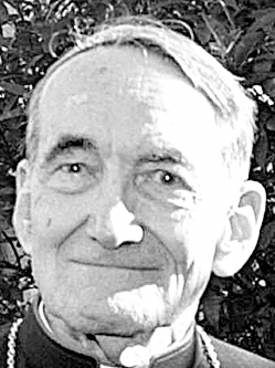Cardinal Dulles was prominent in church and politics
Published 4:00 am Saturday, December 13, 2008

- Cardinal Avery Dulles
NEW YORK — Cardinal Avery Dulles, a convert to Roman Catholicism from a prominent American family who was the only U.S. theologian named a cardinal without first becoming a bishop, died Friday. He was 90.
A Jesuit, Dulles died in an infirmary at Fordham University, where he was a professor for two decades, according to the Rev. Jim Martin of “America,” a Jesuit magazine that regularly published the cardinal’s articles.
Pope John Paul II appointed Dulles in 2001 to the College of Cardinals, making him the first American Jesuit and the first U.S. theologian outside of a diocese to be named a cardinal. He was considered the dean of American Catholic theologians.
When Pope Benedict XVI visited the U.S. in April, he made time for a private meeting with the cardinal in New York, underscoring Dulles’ importance to the church.
Dulles came from a family of statesmen. The grandson of a Presbyterian minister, he was the son of Secretary of State John Foster Dulles, who served under President Dwight Eisenhower. The cardinal’s uncle was Allen Dulles, who led the CIA, also in the Eisenhower administration.
A native of Auburn, N.Y., Avery Robert Dulles was a graduate of Harvard College and joined the Jesuits after he was discharged from the Navy in 1946. He was ordained to the priesthood in 1956, later earning a doctorate in sacred theology from Pontifical Gregorian University in Rome.
He served for 14 years as a professor at The Catholic University in America, becoming an internationally known lecturer, then joined the Fordham faculty in 1988 in New York.
The author of more than 20 books, Dulles specialized in ecclesiology, studying the nature and mission of the church in the world. One of his best known works was “Models of the Church.” Still, he wrote widely on many topics, from Jesus to sacraments to Scripture, said Thomas Groome, a Boston College professor of theology and a former student of Dulles.
“He was the total Catholic theologian,” Groome said.
Among Dulles’ books is “A Testimonial to Grace,” the story of his conversion. An agnostic when he arrived at Harvard, he said he was drawn to Catholicism through his studies of philosophy, the medieval church and the Protestant Reformation.
“I found my sympathies were always on the Catholic side and felt that was where I belonged,” Dulles told America in a 2001 interview.






